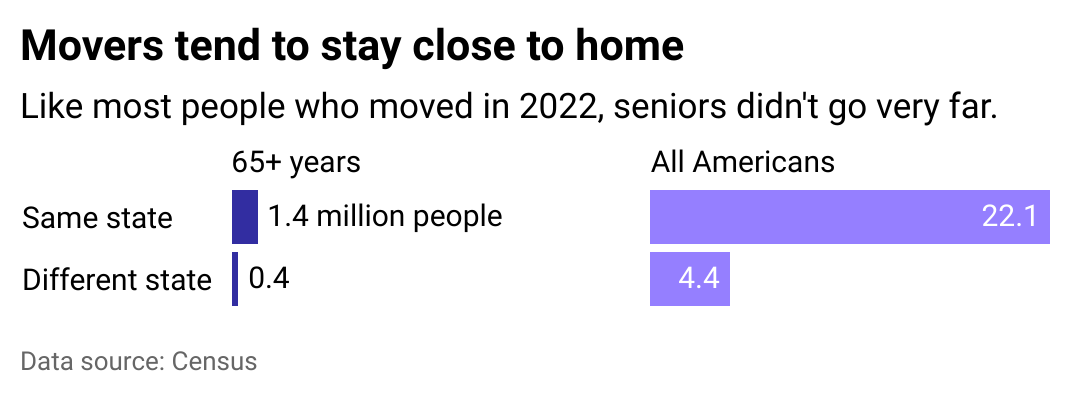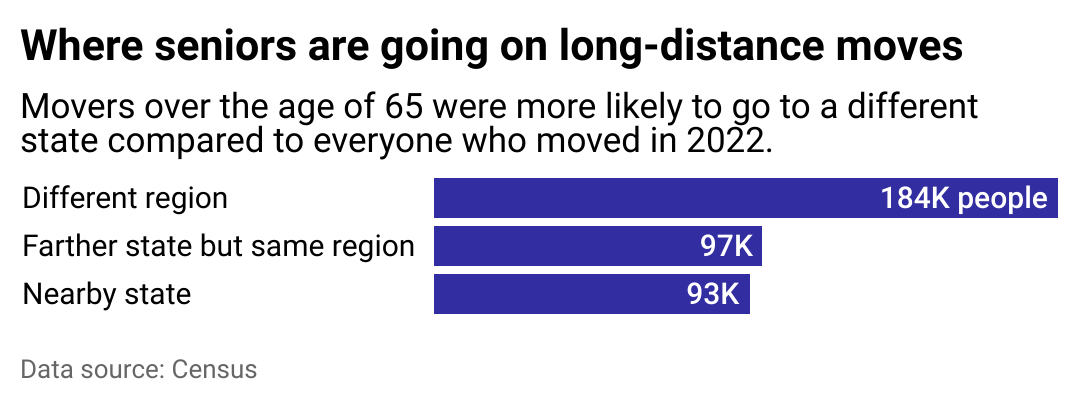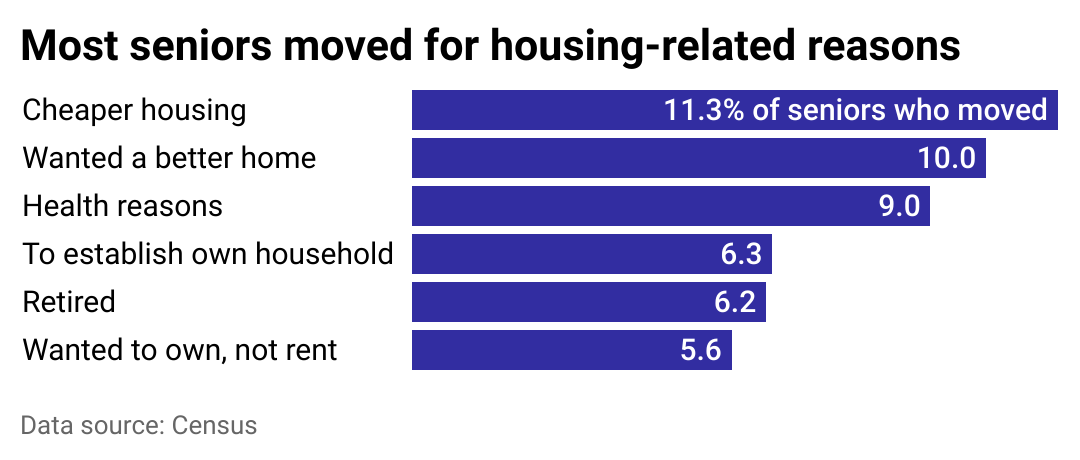When seniors move homes, how far do they go?

Photo Illustration by Michael Flocker // Stacker // Canva
When seniors move homes, how far do they go?
Illustration of two seniors moving boxes with moving truck and house in the background.
Many people think retirement is a time to slow down and stay put, but for many seniors, it’s the perfect chance to move. Whether it’s downsizing from a large family home once the kids have left, moving to a better climate, or finding a home appropriate for aging in place, many seniors opt to find a new place to live.
The COVID-19 pandemic has also played a hand in seniors opting to move. The Federal Reserve Bank of St. Louis found that between 2008 and February 2020, the percentage of retirees in the overall population grew nearly 3 percentage points to 18.3%. By August 2021, that share jumped to 19.3%, as the Federal Reserve counted over 2.4 million “excess retirements,” people who decided to retire during the pandemic. That means many more people than usual are choosing where they’d like to live in this next phase of their lives.
For some, that means a new home. Baby boomers—all of whom will be at least 65 years old by 2030, per the Census Bureau—are the largest group of real estate sellers and buyers. Between July 2021 and June 2022, this generational group made up 53% of sellers and 39% of buyers, according to the National Association of Realtors. Comparatively, millennials were the next highest group of buyers, at 28%.
Where this boom of retirees opts to live can significantly affect policy development, community services, infrastructure, and the real estate market. QMedic analyzed Census Bureau data to see how far seniors go when moving out of their homes.
![]()

QMedic
Same-state moves are most common
A bar chart showing most people who moved in 2022 stayed in their own state.
Aging in place has become an important goal for older people. A March 2023 U.S. News & World Report survey found that at least 9 in 10 respondents (93%) wanted to age in place. That said, many homes aren’t optimal for older people—at least 4 in 10 said (41%) their current residence did not have features to help them maintain their independence.
It’s not surprising that many don’t move to a new state—after years in a community with friends, favorite activities, and perhaps even family nearby, a more appropriate home in the same area can be more tempting than a long-distance move.

QMedic
But are slightly more likely to move farther away
A bar chart showing how far seniors move when they do move to a different state.
According to United Van Lines’ 2022 National Movers Study of its customers, 1 in 5 people moved because they retired. States with suitable climates and low taxes continue to draw retirees to make long-distance moves. SmartAsset’s 2023 study of retiree migration found that Florida, Arizona, and South Carolina were the top destinations for seniors, while California, New York, and Illinois lost the most seniors.

QMedic
Why seniors choose to move
A bar chart showing common reasons seniors moved in 2022.
Traditionally, seniors have moved for better housing options, but inflation and housing costs have become the new drivers for many. A Hire A Helper report found that, in 2022, about 1 in 8 retirees moved to save money as they adjust to living on a more fixed income.
Story editing by Jeff Inglis. Copy editing by Paris Close. Photo selection by Ania Antecka.
This story originally appeared on QMedic and was produced and
distributed in partnership with Stacker Studio.
